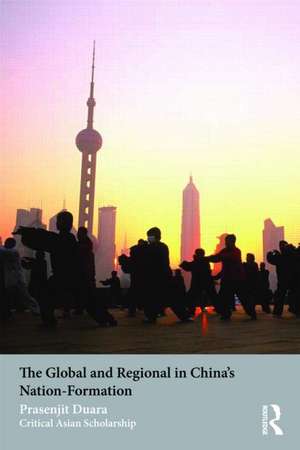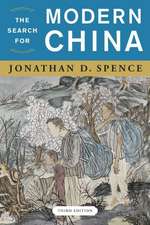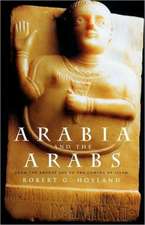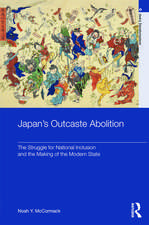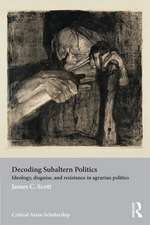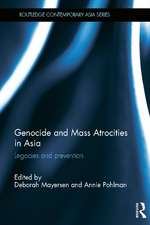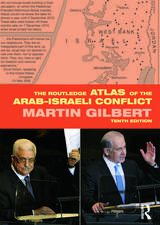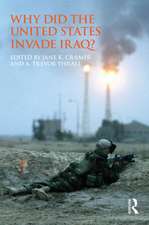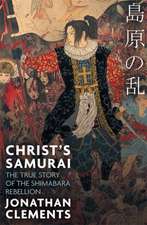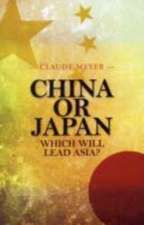The Global and Regional in China's Nation-Formation: Asia's Transformations/Critical Asian Scholarship
Autor Prasenjit Duaraen Limba Engleză Paperback – dec 2008
Part I views imperialism and nationalism in China from the perspective of global and regional circulations and interactions. It also examines the changing role of history over the twentieth century from the same perspective. Part II focuses on how myth, religion and Chinese conceptions of society and polity are re-shaped by external influences and forces, as well as how these internal practices themselves shape the external impact. Part III is a comparative section, examining how global processes become unique developments in China.
The Global and Regional in China’s Nation-Formation is an ideal resource for anyone studying China’s history, society and culture.
| Toate formatele și edițiile | Preț | Express |
|---|---|---|
| Paperback (1) | 384.59 lei 6-8 săpt. | |
| Taylor & Francis – dec 2008 | 384.59 lei 6-8 săpt. | |
| Hardback (1) | 1058.06 lei 6-8 săpt. | |
| Taylor & Francis – dec 2008 | 1058.06 lei 6-8 săpt. |
Preț: 384.59 lei
Nou
Puncte Express: 577
Preț estimativ în valută:
73.60€ • 79.92$ • 61.82£
73.60€ • 79.92$ • 61.82£
Carte tipărită la comandă
Livrare economică 23 aprilie-07 mai
Preluare comenzi: 021 569.72.76
Specificații
ISBN-13: 9780415482905
ISBN-10: 0415482909
Pagini: 268
Dimensiuni: 156 x 234 x 14 mm
Greutate: 0.34 kg
Ediția:New.
Editura: Taylor & Francis
Colecția Routledge
Seria Asia's Transformations/Critical Asian Scholarship
Locul publicării:Oxford, United Kingdom
ISBN-10: 0415482909
Pagini: 268
Dimensiuni: 156 x 234 x 14 mm
Greutate: 0.34 kg
Ediția:New.
Editura: Taylor & Francis
Colecția Routledge
Seria Asia's Transformations/Critical Asian Scholarship
Locul publicării:Oxford, United Kingdom
Public țintă
PostgraduateCuprins
Introduction Part 1: Nationalism and Imperialism 1. The Global and Regional Constitution of Nations: The View from East Asia 2. The Imperialism of "Free Nations": Japan, Manchukuo, and the History of the Present 3. Historical Narratives and Trans-nationalism in East Asia Part 2: Society and Religion 4. Superscribing Symbols: The Myth of Guandi, Chinese God of War Ch 5: Deconstructing China: How Recent is the Chinese nation? 6. ‘Tradition within Modernity’: Women and Patriarchal Regimes in Inter-war East Asia Part 3: China in Comparative Perspective 7. Between Sovereignty and Capitalism: The Historical Experiences of Migrant Chinese 8. Critics of Modernity in India and China 9. Visions of History, Trajectories of Power: China and India since Decolonization
Notă biografică
Prasenjit Duara is Director of Research in Humanities and Social Sciences at the National University of Singapore.
Recenzii
"Prasenjit Duara is one of the few historians who forces us to think in a completely new way about China. From a new idea of what makes up a nation to a profound rethinking of the nature of colonialism, Duara has reshaped the way we think about the Chinese past and its links to the present. This collection of essays showcases a writer who opens up new windows on China and its place in the world." - Rana Mitter, Oxford University, UK, April 2009
"The great appeal of this collection is it gives an excellent overview of the many provocative theoretical insights that this major scholar offers in his writing. The Global and Regional in China's Nation-Formation also sketches out a provocative new paradigm for historians of modern China, East Asia and, indeed, the modern world." - Justin Tighe, The China Journal, No. 64, 2010
"The great appeal of this collection is it gives an excellent overview of the many provocative theoretical insights that this major scholar offers in his writing. The Global and Regional in China's Nation-Formation also sketches out a provocative new paradigm for historians of modern China, East Asia and, indeed, the modern world." - Justin Tighe, The China Journal, No. 64, 2010
Descriere
Covers the major historical problems of China in the twentieth century, namely imperialism, nationalism, state-building, religion and the role of history from the perspective of global and regional circulations and interactions.
